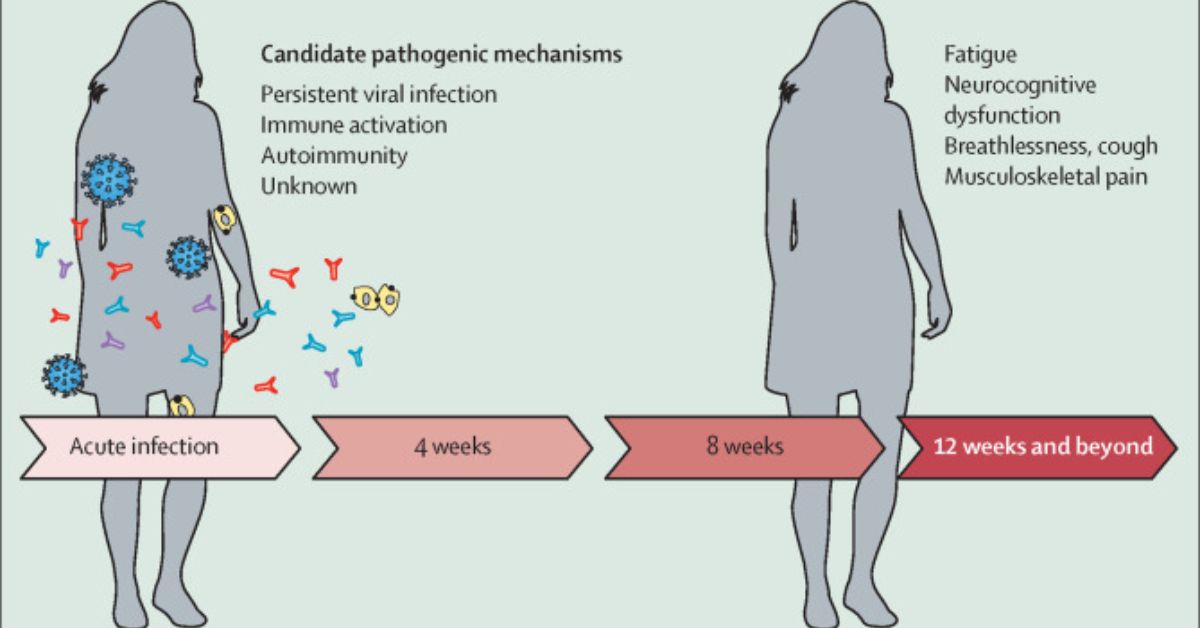You’re in your middle 40s, and after your COVID infection, you’ve started to feel tired, have brain fog, and have joint pain. Is it long COVID? Or are you just getting older?
If you’ve ever had a question, you’re not the only one.
Dr. Alba Miranda Azola, codirector of the long COVID clinic at the Johns Hopkins University School of Medicine, told Fortune, “It’s a thing.”
Almost 650 million COVID cases have been officially recorded worldwide, and about 10% of the world’s population is 65 or older. This means that aging and long COVID are bound to be connected significantly. This is especially true since many people start to notice signs of aging in their early middle years.
“I think it gets a little bit muddy,” Azola said as patients aged.
At the moment, there are no official ways to diagnose long COVID. Even the definition of the condition varies from person to person, but in general, it’s thought to be a set of new symptoms that start during or after a COVID infection and last for weeks or months.
Symptoms of aging and when it happens can vary from person to person because of genetics and the environment. So, Azola and other experts say it’s impossible to say for sure if your new symptoms are caused by aging, having COVID for a long time, or neither.
“Could COVID be long? “In short, yes,” she replied. “But it’s hard to tell if it’s long COVID or if other things are making a difference.”
A “chicken or egg?” situation
With more than 200 symptoms, such as a persistent cough, tiredness, numb ear, and a “brain on fire” feeling, experts say it is clear that long COVID is not one condition but several.
Many say that the best way to describe true long COVID is as a condition that develops after a COVID infection and is similar to chronic fatigue syndrome. It can also happen after an infection with herpes, Lyme disease, Ebola, and other viruses.

Experts say that other problems that can happen after COVID, like organ damage, shouldn’t be called “long COVID.” Instead, they should be put in the larger group of PASC. Post-acute sequelae of COVID-19 is another name for this term, which is used to describe a wide range of COVID effects, such as chronic fatigue-like symptoms, heart disease, lung damage that lasts for a long time, and strange new symptoms like urinary incontinence, itching, and skin lesions.
Long COVID can make signs of aging look or feel the same. The World Health Organization says that, along with fatigue, they often include back and neck pain, osteoarthritis, chronic obstructive pulmonary disease, and dementia, among other things.
The Institute for Health Metrics and Evaluation at the University of Washington says that nearly 60% of the world’s population has been infected with COVID, whether they know it or not. Dr. Nir Goldstein, a pulmonologist at National Jewish Health in Denver who runs the hospital’s long COVID clinic, says it’s hard to tell what new symptoms and conditions the virus caused or contributed to now that most people in the world have had it.
“From a clinical point of view, it becomes hard to say when something happened,” he told Fortune.
Latest News
- China Ends the COVID-19 Quarantine for People Coming Into the Country
- How Long Does COVID Cough Last?
Timing as a tell
Dr. Panagis Galiatsatos, an assistant professor in the pulmonary and critical care medicine division at Johns Hopkins who works with long COVID patients, told Fortune that aging symptoms tend to come on slowly.
“There is a big difference between ‘Before I felt like this’ and ‘After I felt like that,'” he said about long COVID symptoms after a COVID infection. “I don’t see many people who think their symptoms are due to getting older.”
Amazing headline
1. Most ppl w long COVID feel better with time
2. NIH study shows no biochemical abnormalies despite 100s test
3. Long URI (not covid) had worse patient reported outcomes (JamaNO)And yet… https://t.co/JR5v5zCGoL
— Vinay Prasad MD MPH (@VPrasadMDMPH) December 27, 2022
“After COVID, a lot of patients say they feel like they’ve gotten older,” he said.
Many of Azola’s elderly patients have been less active over the past two years because of the pandemic. They now say that exercise makes them tired. She said that some of their symptoms could be caused by less activity during the pandemic and not by the virus.
She said, “The older population has a mix of less activity during the years of isolation and deconditioning.”
She said, “Most people do well with more physical ways to progress in activity” or physical therapy.
You've probably heard about long COVID. But do you know exactly what it means to have it? Probably not — and that’s because not even doctors or public health leaders have settled on a clear definition for it. That's a problem, and here's why.https://t.co/pL7yuWiWXq
— Joedy McCreary (@JoedyMcCreary) December 28, 2022
Experts say that it doesn’t matter what’s causing your symptoms now because there are no treatments for long COVID. No matter what the cause is, doctors treat the symptoms.
If the exact causes of long COVID are found and treatments are made, Goldstein said, the cause of the symptoms could become important.
“But it doesn’t matter right now,” he said.
Keep following our website Nog Magazine.com for more updates.